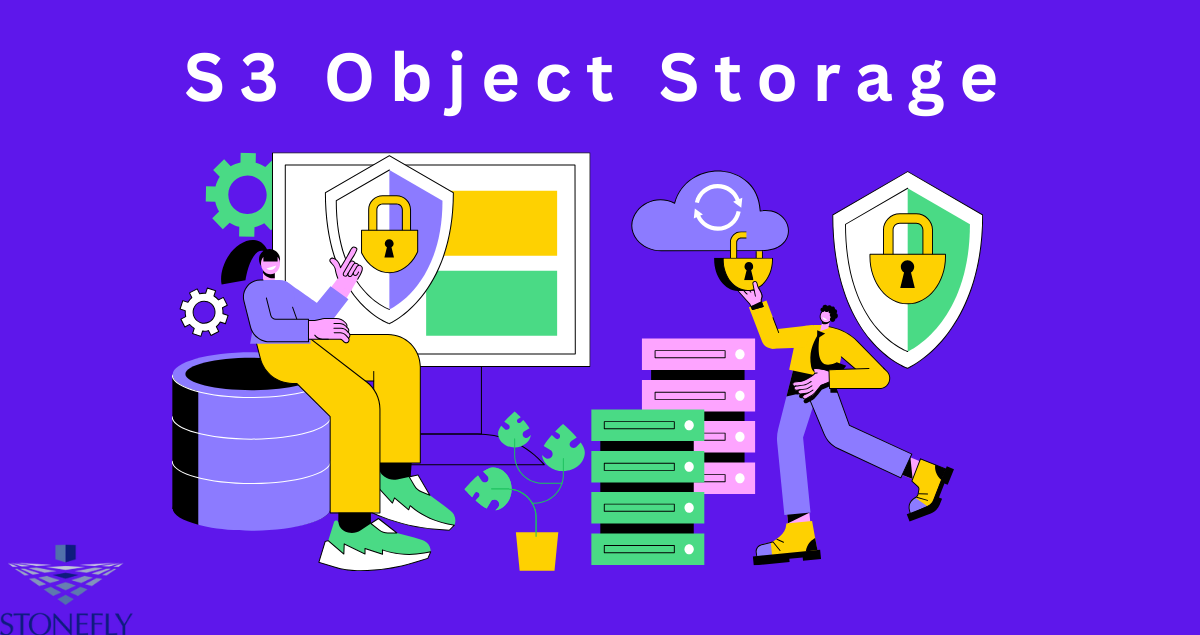S3 Object Storage: Unlocking Scalability, Durability, and Efficiency
In today’s digital age, data is the lifeblood of any organization. As businesses generate and collect more data than ever before, the need for scalable, cost-effective, and secure storage solutions becomes paramount. This is where S3 Object Storage comes into play. Designed for IT professionals, data scientists, and cloud storage users, S3 Object Storage offers a powerful solution for managing vast amounts of unstructured data.
In this comprehensive guide, we’ll delve into what S3 Object Storage is, explore its key features and benefits, and provide best practices for implementation. We’ll also compare it with other storage solutions to help you make informed decisions for your data storage needs.
Understanding S3 Object Storage
What is S3 Object Storage?
S3 Object Storage is a type of storage architecture designed to manage large amounts of unstructured data, such as photos, videos, backups, and log files. Unlike traditional block storage, which stores data in fixed-size blocks, object storage organizes data into flexible-sized units called “objects.” Each object includes the data itself, metadata (information about the data), and a unique identifier.
Key Features and Benefits
- Scalability: S3 Object Storage can handle virtually unlimited amounts of data, making it ideal for businesses that expect their data needs to grow exponentially.
- Durability: Designed for high durability, S3 Object Storage typically replicates data across multiple locations, ensuring that your data remains safe even in the event of hardware failures.
- Low Latency: With architecture optimized for quick access, S3 Object Storage provides low latency, allowing fast retrieval of data.
- Cost-Effective: Pay-as-you-go pricing models ensure you only pay for the storage you actually use, without the need for large upfront investments.
- Ease of Access: Objects can be accessed via simple API calls, making it easy to integrate with various applications and workflows.
Use Cases for S3 Object Storage
Data Analytics
S3 Object Storage is a game-changer for data analytics. It allows data scientists to store and analyze large datasets with ease. By enabling quick access and providing robust storage for large volumes of data, it helps streamline data processing tasks and accelerates time-to-insight.
Content Distribution
For businesses in media and entertainment, S3 Object Storage provides a reliable platform for distributing content globally. With its high availability and low latency, it ensures that videos, images, and other media files are delivered quickly and efficiently to users around the world.
Backup and Archiving
One of the most common uses for S3 Object Storage is for backup and archiving. Its durability and scalability make it an excellent choice for storing critical data over the long term. Additionally, its cost-effectiveness ensures that organizations can keep extensive archives without breaking the bank.
Case Studies
- FinTech Company: A leading FinTech firm integrated S3 Object Storage for storing customer transaction data. The scalable solution allowed them to manage growing data volumes without increasing costs significantly.
- Healthcare Provider: A healthcare provider used S3 Object Storage to archive patient records securely. The high durability ensured that sensitive medical data was protected against loss, complying with stringent healthcare regulations.
Best Practices for Implementing S3 Object Storage
Optimizing Storage Performance
- Data Organization: Organize your data in a logical structure, using prefixes and tags to manage and retrieve objects efficiently.
- Lifecycle Policies: Implement lifecycle policies to automatically transition infrequently accessed data to cheaper storage classes, optimizing costs without sacrificing accessibility.
- Caching: Use caching mechanisms to improve access speed for frequently accessed data.
Cost Management
- Monitor Usage: Regularly monitor your storage usage and costs using built-in analytics tools. This will help you identify areas where you can reduce costs.
- Storage Classes: Make use of different storage classes depending on data accessibility needs. For instance, seldom accessed data can be moved to cost-effective, archival storage classes.
Security Considerations
- Encryption: Always encrypt data both at rest and in transit to protect against unauthorized access.
- Access Controls: Implement strict access control policies to ensure only authorized users can access sensitive data. Using role-based access controls (RBAC) can help manage permissions effectively.
- Compliance: Ensure that your storage practices comply with relevant regulations, including data protection laws like GDPR or CCPA.
Comparing S3 Object Storage with Competing Solutions
Alternative Object Storage Services
While S3 Object Storage offers numerous advantages, it’s essential to consider other object storage services to find the best fit for your needs. Some competing solutions may offer unique features or pricing models that better align with your requirements.
- Service A: Known for its robust security features and compliance options, making it a good choice for industries with stringent data protection regulations.
- Service B: Offers competitive pricing for long-term archival storage, ideal for businesses looking to minimize costs for storing infrequently accessed Data.
- Service C: Provides excellent integration with other cloud services, making it a versatile option for organizations with diverse cloud ecosystems.
Cost Comparison and Scalability
When comparing costs, consider the following factors:
- Storage Pricing: Evaluate the base cost per gigabyte of storage and any additional fees for data retrieval or transfer.
- Scalability: Assess how each service handles scaling up or down based on your dynamic data needs. Look for features like auto-scaling and flexible storage classes.
- Support and SLA: Review the service level agreements (SLAs) and customer support options. Opt for a provider that offers strong guarantees for uptime and quick resolution of issues.
Conclusion
S3 Object Storage stands as a powerful solution for IT professionals, data scientists, and cloud storage users looking to manage large volumes of unstructured data. Its scalability, durability, and cost-effectiveness make it a valuable tool for various applications, from data analytics to content distribution and backup.
By following best practices for implementation and considering your specific needs, you can harness the full potential of S3 Object Storage to drive efficiency and innovation within your organization.
Ready to take the next step? Explore the benefits of S3 Object Storage for your business today and unlock new possibilities for data management and growth.
FAQs
What is the difference between S3 Object Storage and other cloud storage solutions?
S3 Object Storage offers highly scalable, durable, and cost-effective storage for unstructured data. Unlike traditional block-based storage solutions, it stores data as objects, making it easier to manage large datasets. Additionally, its integration with other AWS services makes it a popular choice for businesses using the AWS ecosystem.
Can I use S3 Object Storage with my existing applications and workflows?
Yes, S3 Object Storage is compatible with various third-party tools and programming languages commonly used in data analytics, content distribution, backup and archiving processes. It also offers API access for seamless integration within your custom applications.
Is my data secure on S3 Object Storage?
Absolutely. As with all AWS services, S3 Object Storage offers comprehensive security features, including encryption at rest and in transit, access controls, and compliance certifications. You can also implement your own security measures on top of the built-in features for added protection. So, organizations can trust S3 Object Storage to store their sensitive data securely. Additionally, its storage durability ensures that data is protected against loss or damage over time.
What kind of support does AWS offer for S3 Object Storage?
As an AWS service, S3 Object Storage comes with a range of customer support options and resources. These include documentation, forums, chat support, email support and phone-based technical assistance for paid accounts. For enterprise customers with more demanding needs, AWS offers dedicated account managers and premium support plans.
How does S3 Object Storage compare to traditional on-premises storage solutions?
Compared to traditional on-premises storage, S3 Object Storage offers several advantages such as scalability, durability, and cost-effectiveness. It eliminates the need for hardware maintenance and upgrades, allows for seamless integration with other cloud services, and offers flexible pricing models. Additionally, object storage is designed specifically for managing unstructured data like media assets, making it a more efficient solution for organizations dealing with large volumes of this type of data.





